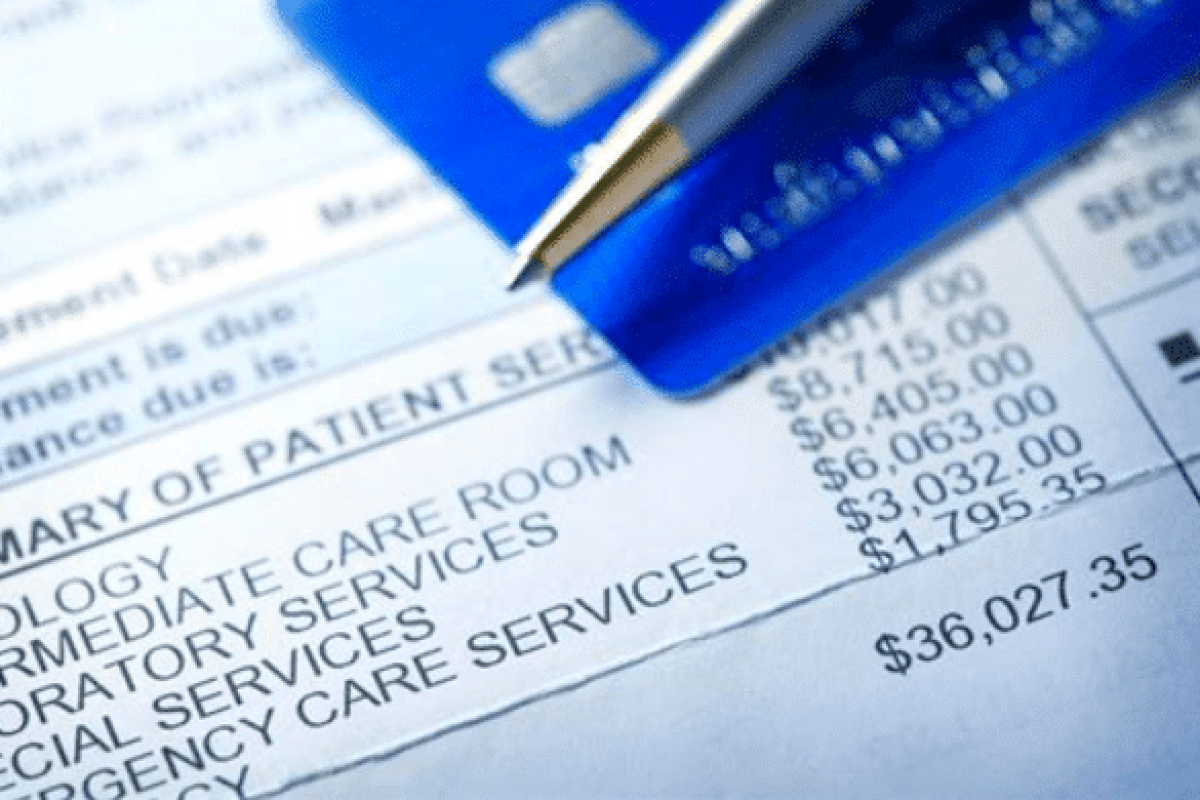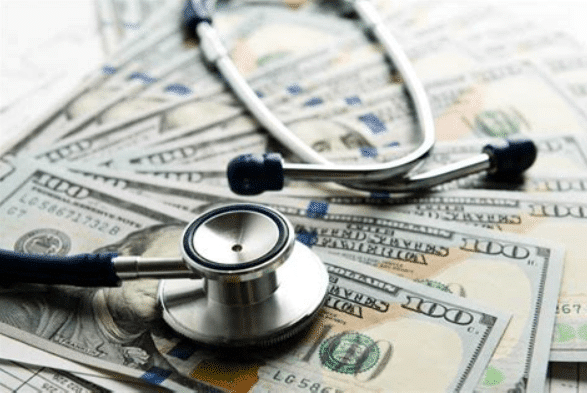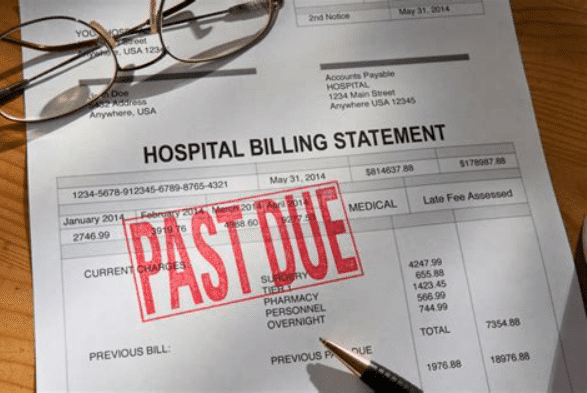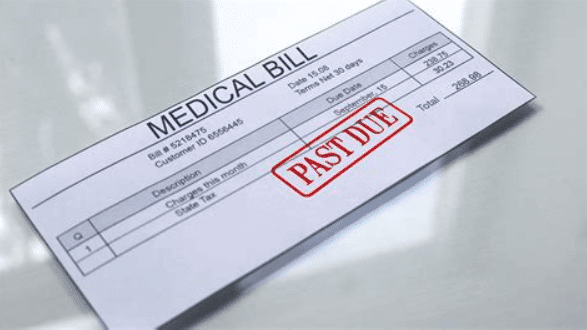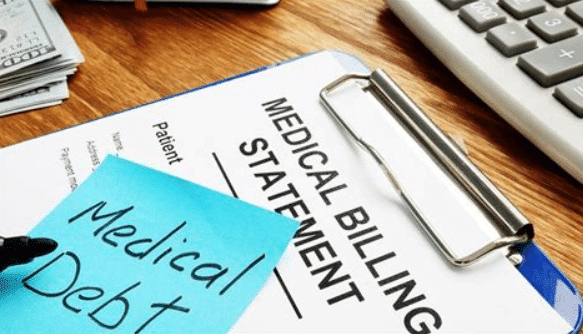Are you thinking about making a new start by filing for bankruptcy? Find out if bankruptcy will clear your medical debt. ZumaZip.com for more info and FREE Resources
Typically when someone declares bankruptcy it is a sign that things are not going well financially. Despite this, if you are suffering from a medical problem or sudden accident, the bills are the last thing on your mind. Instead, you focus on getting healthy again.
Unfortunately, medical bills build-up, and can become extremely overwhelming. If you have considered declaring bankruptcy then you should understand exactly what it means, and if declaring bankruptcy will truly clear your medical debt.
Use ZumaZip to respond to debt collectors and win in court.
Does bankruptcy clear medical debt?
When filing for bankruptcy you cannot pick and choose which part of your life you file in. If you file for bankruptcy then you will be given relief from most of your debts including your medical debt. This is because medical debt is considered non-priority unsecured debt, meaning it’s dischargeable (forgiven).
The only debts that will not be forgiven are priority debts. These include tax bills, child support, and most student loans. If you default on any secured debt like a mortgage or a car loan, then you will lose the collateral you put up.
For anyone dealing with overwhelming debt, such as medical bills, it is important to understand what bankruptcy will do to your life. It is not necessarily a quick fix and has long-term ramifications.
Protect yourself from debt collectors by responding with ZumaZIp.com
Understanding how bankruptcy works
During the bankruptcy process, you will be required to work with a court-approved credit counselor as well as a trustee. All of your debts will be disclosed, as well as your income, and property. Then the court will determine what the next steps will be. It is an extremely complicated process.
There are two main types of personal bankruptcy: Chapter 7 and Chapter 13. These two forms of filing bankruptcy address excessive debt, but they are very different.
Chapter 7 bankruptcy
Chapter 7 bankruptcy is typically filed when you cannot afford to repay your debts. You will speak to the court about what you owe, and they will sell any assets to help you pay off your debt. When filing a Chapter 7 bankruptcy your medical debt will be discharged within a few months. This might sound great, but it is not the best choice for everyone.
To file for Chapter 7 bankruptcy, your income must be below a specified median for the state you reside in, as well as the size of your household. Additionally, if you own property it may be liquidated and the money received will be used to pay off your debts. There are cases of exemptions, but most often you will end up losing your property.
Another thing to take into consideration is that it will take anywhere from three to seven months. After the bankruptcy is declared final, all of your eligible debts will be forgiven. Despite this, it will stay on your credit report for 10 years. This will make it difficult to be approved for loans, or at least obtain one with favorable rates and terms.
Pick the right affirmative defense and win your case with ZumaZip.com
Chapter 13 bankruptcy
Filing a Chapter 13 bankruptcy means that you are working to pay back your debt in a more manageable way. After you decide to file for a Chapter 13 bankruptcy, the court will look at all of your debt, income, and assets. They will then create a court-mandated plan to help you repay it. This might be a plan to repay some of your debt, or all of your debt, in affordable monthly installments. These installments may not exceed 15% of your disposable income.
Typically a Chapter 13 bankruptcy results in a three to five-year repayment program. This is based on the debt you owe and how much income you make. plan. The plan is based on your debt and income levels. At the end of your payment period, you may have some of your debts discharged, where you will not need to pay off the rest of your debts.
There are rules involved in a chapter 13 bankruptcy, as the debt cannot exceed certain levels. You may not have more than $394,725 in unsecured debt and no more than $1,184,200 in secured debt to file. You must also have a regular income to continue to pay on your loans.
In some cases, homeowners are better suited to choose a Chapter 13 filing. This is because it stops the foreclosure process and allows you to include your home loan as one part of your repayment plan. Although a Chapter 13 filing may seem more favorable than a Chapter 7 filing, it also stretches out over years, elongating the entire process.
Call the Bankruptcy Hotline
Dial 888-790-4291. ZumaZip.com partners with the Free Bankruptcy Advice Helpline.
What is ZumaZip?
ZumaZip is a convenient solution designed to streamline your response to a debt collection lawsuit. Here’s a breakdown of what you can expect when you use ZumaZip:
Firstly, you’ll access our user-friendly web application, which guides you through the process step by step. You’ll be prompted to answer a series of questions related to your specific situation. Once you’ve completed the questionnaire, you have the option to either print out the finalized forms and mail them to the appropriate courts yourself, or you can opt to utilize ZumaZip’s services to file them on your behalf. Additionally, if you choose this option, an attorney will review your document for added peace of mind.
If you’re seeking guidance on how to effectively respond to a debt collection lawsuit, ZumaZip can provide the assistance you need. Feel free to explore our FAQs for more information on what ZumaZip has to offer.
What if I haven’t been sued yet?
If you’ve only received a collections notice, but not a lawsuit, the best way to respond is with a Debt Validation Letter. When a debt collector contacts you in any way, whether it’s by phone or mail, you can respond by formally requesting a debt validation with a Debt Validation Letter . This letter notifies the collector that you dispute the debt and forces them to provide proof you owe the debt. They can’t call you or continue collecting until they provide validation of the debt. This flowchart shows how you can use a Debt Validation Letter to win.
Get started with a Debt Validation Letter here.
How to Answer a Summons for debt collection in all 50 states
Here’s a list of guides on how to respond to a debt collection lawsuit in each state:
- Alabama
- Alaska
- Arizona
- Arkansas
- California
- Colorado
- Connecticut
- Delaware
- Florida
- Georgia
- Hawaii
- Idaho
- Illinois
- Indiana
- Iowa
- Kansas
- Kentucky
- Louisiana
- Maine
- Maryland
- Massachusetts
- Michigan
- Minnesota
- Mississippi
- Missouri
- Montana
- Nebraska
- Nevada
- New Hampshire
- New Jersey
- New Mexico
- New York
- North Carolina
- North Dakota
- Ohio
- Oklahoma
- Oregon
- Pennsylvania
- Rhode Island
- South Carolina
- South Dakota
- Tennessee
- Texas
- Utah
- Vermont; Vermont (Small Claims court)
- Virginia
- Washington
- West Virginia
- Wisconsin
- Wyoming
Guides on how to beat every debt collector
Hey there! Facing off against a debt collector can feel like a daunting challenge, but fear not! We’re here to help you navigate through it all with our handy guides designed to assist you in beating every debt collector you encounter. Whether you’re facing a new lawsuit or dealing with a persistent collector, we’ve got your back. Stay positive, stay informed, and let’s tackle this together!
- Absolute Resolutions Investments LLC
- Accredited Collection Services
- Alliance One
- Amcol Clmbia
- American Recovery Service
- Asset Acceptance LLC
- Asset Recovery Solutions
- Associated Credit Services
- Autovest LLC
- Cach LLC
- Cavalry SPV I LLC
- Cerastes LLC
- Colinfobur
- Covington Credit
- Crown Asset Management
- CTC Debt Collector
- Cypress Financial Recoveries
- Delanor Kemper & Associates
- Eagle Loan of Ohio
- Educap
- Estate Information Services
- FIA Card Services
- Forster & Garbus
- Freshview Solutions
- Fulton Friedman & Gullace LLP
- Harvest Credit Management
- Howard Lee Schiff
- Hudson & Keyse LLC
- Integras Capital Recovery LLC
- Javitch Block
- Jefferson Capital Systems LLC
- LVNV Funding
- Mannbracken
- Mariner Finance
- Medicredit
- Michael J Adams PC
- Michael J Scott
- Midland Funding LLC
- Mullooly, Jeffrey, Rooney & Flynn
- Mountain Land Collections
- MRS Associates
- National Collegiate Trust
- Nationstar Foreclosure
- Northstar Capital Acquisition
- NCEP LLC
- NRC Collection Agency
- OneMain Financial
- Palisades Collection LLC
- Pallida LLC
- Paragon Revenue Group
- Pinnacle Collections Agency
- PMAB LLC
- Portfolio Recovery Associates
- Provest Law
- PYOD LLC
- Reunion Student Loan Finance Corporation
- Revenue Group
- Regents and Associates
- RSIEH
- Salander Enterprises LLC
- Second Round Sub LLC
- Security Credit Services
- Sherman Financial Group
- Suttell and Hammer
- T-Mobile
- Transworld Systems
- Tulsa Teachers Credit Union
- UCB Collection
- Velo Law Office
- Velocity Investments
- Waypoint Resource Group
- Weinberg and Associates
- Wolpoff & Abramson
Settle your medical debt
Having a health challenge is stressful, but dealing medical debt on top of it is overwhelming. Here are some resources on how to manage medical debt.
- Am I Responsible for My Spouse’s Medical Debt?
- Do I Need a Lawyer for Medical Bills?
- Do I Need a Lawyer to Fight Medical Bill Debt?
- Does Bankruptcy Clear Medical Debt?
- How Much Do Collection Agencies Pay for Medical Debt?
- How to Find Medical Debt Forgiveness Programs
- Is There a Statute of Limitations on Medical Bills?
- Medical Debt Statute of Limitations by State
- Summoned to Court for Medical Bills — What Do I Do?
- Summoned to Court for Medical Bills? What to Do Next
Stop calls from Debt Collectors
Do you keep getting calls from an unknown number, only to realize that it’s a debt collector on the other line? If you’ve been called by any of the following numbers, chances are you have collectors coming after you, and we’ll tell you how to stop them.

